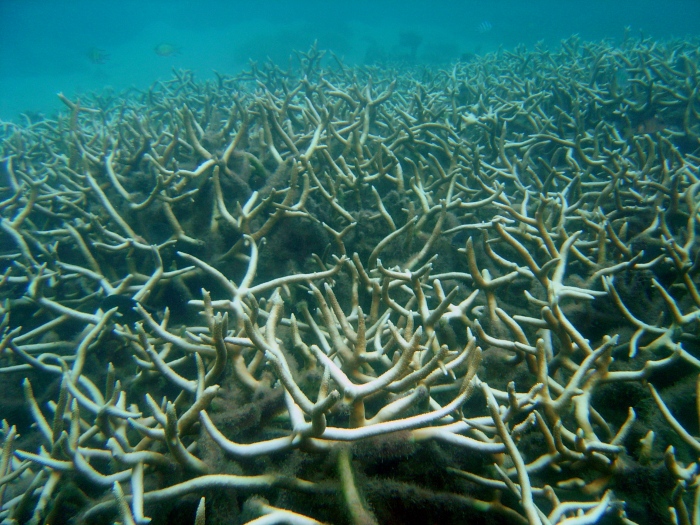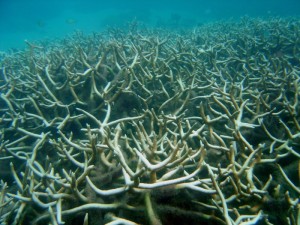Ojo on Ocean Acidification

 By Jose Gonzalez, NewsTaco
By Jose Gonzalez, NewsTaco
Do you recall acid rain? How about the hole in the ozone layer?
There may several among us who may not remember the problem of acid rain threatening our forests and lakes. At the global level, the concern over the hole in the ozone layer led to worldwide action—which to a large degree we were successful.
Prior to that, it was rivers catching on fire that prompted action to clean up the nation’s water and enact the Clean Water Act.
That tells us we can come together to solve big environmental problems.
Could we say we are on the same track with climate change?
Maybe.
It is a big scary problem, especially if you read last week’s draft report –with accompanying alarming charts—on how climate change is affecting the country. It is something we need to tackle.
But there is another issue that could use a little more discussion in the Latino community: Ocean Acidification.
Ocean acidification is sometimes called “climate change’s evil twin” given it has the same parent: carbon emissions. Much like the havoc those carbon emissions are playing in the atmosphere with climate, there is similar havoc in the oceans.
This matters a whole lot because we may not be able to deal with it as easily as with acid rain or the ozone hole. And it matters because it is a consequence of carbon emissions—which we have struggled to rein in to the same degree as we did with sulfur emissions to deal with acid rain or with chlorofluorocarbons to deal with the ozone hole.
Think about what the ocean provides. It is a food and oxygen source with many livelihoods depend on it, human and other. It is complex and a delicate ecosystem that we have not treated very well, from dead zones caused by fertilizer runoff to fisheries collapsing from overfishing, —down to what seems comical being able to measure the caffeine from our urine.
But what may be truly devastating, and take longer from which to recover, is how turning the ocean into carbon sink is changing its very chemistry.
The science could be boiled down to this: As the atmosphere’s carbon dioxide (CO2) content increases, some of it mixes with ocean water, forming carbonic acid, and lowering the pH of ocean water—making it more acidic.
The effects of this are being measured and understood. Coral reefs, which are diverse habitats for countless species, may struggle to adapt with the same diversity. The shells of various species are dissolving or not forming regularly, along with a host of other issues.
This is not to mean that one will dissolve by taking a beachside swim. But it does mean we are changing the ocean to a state that will be different from what we have recently known—changes happening in our lifetime.
To stress, it is a big deal and the point is not to simply sound alarmist. We can deal with it, but as a concerted effort. If Latinos are to be an influential force in conservation and environment policy, ocean acidification is one to tackle along with climate change. So let us read up on it, and support Latino efforts to address it. As we act to clean our communities, conserve landscapes, and speak up on climate change, let us remember how the ocean is hurting too—with our need to speak up and act to conserve it.
[Photo by NOAA/David Burdick]
